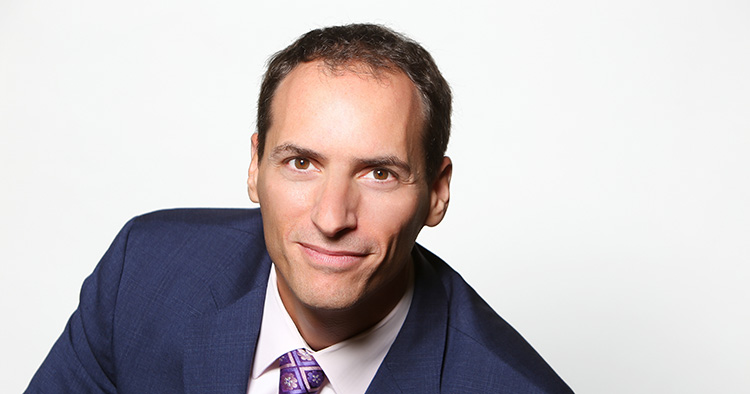Clio and the cloud, 10 years later

Ari Kaplan
Ari Kaplan spoke with Jack Newton, the CEO and co-founder of Clio, a leading practice management software platform.
Ari Kaplan: Tell us about your background and the genesis of Clio.
Jack Newton: Clio is a completely cloud-based practice management and legal CRM platform. I had the idea for Clio, along with my co-founder Rian Gauvreau, over a decade ago. We met in third grade as 8-year-olds in a playground in Edmonton, Alberta, Canada. We became best friends with an entrepreneurial spirit and wanted to create a company together. Rian was the IT manager for Gowlings, one of Canada’s largest law firms, and I worked at Chenomx, a life sciences startup, where I saw this unbelievable opportunity in 2008 opening up around the cloud. From a technology perspective, it seemed to be a once-in-a-lifetime tectonic shift in computing platforms that we might be able to take advantage of. Meanwhile, Rian saw how broken legal technology was and how poorly most law offices utilized it. When we looked at the market and dug into this opportunity, we concluded that it was rooted in the fact that on-premises systems were very expensive and hard to use. We saw the cloud as a real opportunity to simplify the delivery mechanism for software and provide world-class technology as simple as clicking a button on a website. We could also deploy it at a really affordable cost that worked for everyone from solos and small firms all the way up to large law firms. We celebrated Clio’s 10-year anniversary this past October, and looking back, I think we can count ourselves pretty lucky that we made a lot of those early bets on where the cloud and legal technology were headed.
Ari Kaplan: You just launched Clio Grow at Legalweek. How does that align with the company’s core mission?

Jack Newton
Jack Newton: Clio Grow features our new cloud-based legal CRM, which came to us through our acquisition of Lexicata. In a client’s journey, there’s an early stage where they discover a firm, then inquire about potentially working together, and later stages where that firm converts the lead into a client. When the firm retains the client, it opens a matter and tracks its tasks, among an array of other items. Clio Grow supports that entire process. We have integrated delivering great work with a great experience through software that streamlines billing, online payments and performance. From intake to invoicing, Clio Grow helps us provide an end-to-end solution, which is far broader in scope than what we’ve traditionally called practice management software. We have rebranded our practice management product as Clio Manage and incorporated both into the Clio Suite.
Ari Kaplan: How do you simultaneously manage growth and maintain a unique company culture?
Jack Newton: Our goal is to be one of the highest-performing software companies in the world, but not at the cost of the happiness of and engagement with our employees. We think there’s a world where you can fuel high performance, but provide all the right tools, frameworks and coaching to support that level of productivity. We thought about that very carefully in the early days of Clio and have instituted a few key systems to screen for our values in our hiring process. For example, we have a dedicated internal coach that supports employees who want to get to the next level of performance or work through something with which they are struggling. The last piece of that puzzle is a goal management system that helps people understand what we are doing as an organization, why and how they can contribute to each goal.
Ari Kaplan: How have the expectations of legal technology changed over the past 10 years?
Jack Newton: One interesting frame of reference to us is that the iPhone launched essentially at the same time as Clio. Since then, the expectations of technology have shifted dramatically across the board, and legal technology is part of that broader shift. Legal professionals now want a better user experience so the bar has been raised. They want delightful, beautiful software and they know it is available from using their smartphones. As a result, they are starting to demand the same of the enterprise software that they are using in their day-to-day workflow. If I rewind to 2008, the chief risk that Rian and I identified when we launched Clio was whether lawyers would accept the cloud, but we’ve seen a huge shift in perception that has almost been inverted to the point that hosting data on-premises is viewed as the liability.
Ari Kaplan: How does your annual Clio conference support this shift in expectations?
Jack Newton: We have always viewed our role as not just delivering legal technology to lawyers, but also educating them about how they can effectively deploy that technology to transform their practices in really positive ways. Too often, legal technology is framed as a productivity tool to help bill more hours or go home early; however, it should be about enabling a truly great client experience. Embracing the cloud and the mobile access it provides can produce enormous advantages in terms of client service, responsiveness and increasing one’s ability to work from anywhere in the world. Given how important referrals are to lawyers, you also need to be designing every aspect of your interaction with clients around creating advocates, who will conclude a legal engagement with you and become super fans that tell others what a great lawyer you were and how much you helped them.
Ari Kaplan: Where do you see legal tech headed?
Jack Newton: Legal tech is at a really interesting inflection point. While the cloud transformation of legal is nearing completion, we are not there yet as some firms and companies are still very entrenched in the on-premises world. Eventually the on-premises approach will fade away to utter irrelevance, particularly over the next five years. We are also seeing the advent of artificial intelligence and machine learning, which have an enormous opportunity to impact almost every aspect of legal. I think these are huge value-adds to lawyers and will give them superpowers to automate the mundane and menial tasks, and help them gain new insights to do the things they were never able to address before.
Listen to the complete interview at Reinventing Professionals.
Ari Kaplan regularly interviews leaders in the legal industry and in the broader professional services community to share perspective, highlight transformative change and introduce new technology at his blog and on iTunes.



